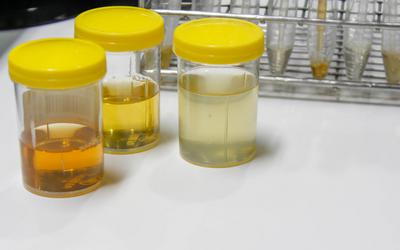Federal vs State Drug Laws
Conducting pre-employment drug testing and maintaining a post-hire drug test policy offers significant benefits for employers. However, the rapid changes in state laws regarding medical and/or recreational marijuana use have posed some challenges for employers who maintain a drug-free workplace and/or drug testing policies. In addition to following state-by-state drug testing laws, employers in certain states must also devise a plan to deal with differences between state and federal laws.
The following guide to state and federal drug testing laws provides an overview of some of the most important factors employers need to consider.

Federal vs. State Marijuana Laws
While many states now allow marijuana use for medicinal and/or recreational purposes, it remains completely illegal on the federal level. In fact, the federal government classifies marijuana as a Schedule I drug — along with cocaine and heroin. This category of substances indicates a high potential for abuse with little to no medical benefit.
The conflict between federal drug laws vs state laws creates complications for both marijuana users and employers. Not only do employers need to be aware of drug laws by state, but depending on the industry, they may also need to adhere to federal compliance regarding standard drug testing and workplace drug policies. For example, employers performing national security and certain public safety functions typically need to follow strict federal guidelines.
Workplace Drug Testing: Federal vs. State Compliance
At the federal level, marijuana use is included in the Department of Transportation (DOT) drug screen compliance requirements and the Drug-Free Workplace Act (DFWA).
Employers in safety-sensitive transportation industries like aviation, railroads, and trucking are required to follow the DOT's vigorous drug testing protocols. This includes a prohibition on the use of marijuana. In addition, the Drug-Free Workplace ACT requires federal contractors to establish a drug-free workplace as a precondition for receiving grants or contracts from federal agencies. However, it's important to note that the DFWA does not require drug testing or termination for drug-related violations.
When establishing a drug and substance abuse policy, employers need to consider the interaction between federal and state laws. Employers in industries that are required to follow federal drug policies must comply with federal laws even if they directly conflict with state laws. However, if an employer is able to follow state laws without running afoul of federal compliance requirements, then the employer should follow state law.
State Marijuana Laws
Currently, there are no state laws that require employers to allow an employee to come to work impaired or allow marijuana use during work hours. This means that employers are well within their rights to maintain a drug-free workplace policy and discipline employees who come to work impaired or use marijuana at work – regardless of the laws in their state.
However, some states (like New York) expressly prohibit disciplining employees for using marijuana when not on duty. Others (like New Jersey) prohibit taking any adverse action against an employee based on a positive marijuana test result.
Medical Marijuana Accommodation
Some states also require employers to grant an employee's request for "reasonable accommodation" when it comes to medical marijuana use. For example, the Massachusetts "Act for the Humanitarian Medical Use of Marijuana" statute states that patients cannot be denied "any right or privilege" due to their medical marijuana use. This includes disciplining an employee or denying employment based on a positive drug test. Nevada and Vermont also have state discrimination laws that require employers to engage in an interactive process and attempt to accommodate reasonable needs of medical marijuana patients.
Federally Mandated Drug Testing
Employers who are required to follow federal drug testing procedures must continue to maintain a zero-tolerance drug policy. However, in states where medical and/or recreational marijuana is legal, employers may need to adopt new drug testing protocols that detect marijuana intoxication instead of using traditional drug tests that detect metabolites, which can remain in the body for many days after using marijuana.
Questions? Consult with an Expert!
Navigating rapidly evolving marijuana laws creates new challenges for employers. It's critical for employers who engage in drug testing or have a drug and alcohol use policy to remain aware of both federal and state laws.
Health Street offers drug and alcohol testing compliance services and provides multiple types of drug test panels to meet various employer needs. For questions regarding how to implement a drug and alcohol testing policy within your business, feel free to contact us.
Frequently Asked Questions
How do companies maintain federal compliance with drug laws?
Companies that are subject to federal drug testing requirements must ensure they clearly understand their obligations under federal law and create policies and procedures to ensure they are met.
What do you do when regulations contradict?
When state vs federal laws conflict, employers must always follow federal laws. However, if it's possible to follow state laws without violating federal laws, then state laws should be followed.
Which states have different drug laws?
Medical marijuana is currently legal in 39 states and the District of Columbia. Recreational marijuana is legal in 18 states, the District of Columbia, and Guam. Each of these states has drug laws that are different from federal laws.
What happens when federal and state compliance laws differ?
When federal and state compliance laws differ, federal law takes precedence. However, the federal government generally does not enforce marijuana laws in states where it is legal.





